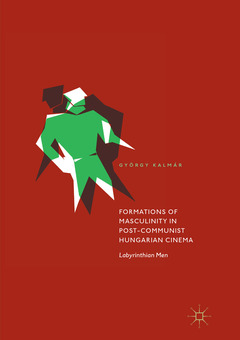Description
Formations of Masculinity in Post-Communist Hungarian Cinema, Softcover reprint of the original 1st ed. 2017
Labyrinthian Men
Author: Kalmár György
Language: English
Publication date: 05-2018
Support: Print on demand
Publication date: 10-2017
Support: Print on demand
Description
/li>Contents
/li>Biography
/li>Comment
/li>
This book investigates the formations of masculinity in Hungarian cinema after the fall of communism and explores some of the cultural phenomena of the years following the 1989 regime change. The films explored offer a unique perspective encompassing two entirely different worlds: state socialism and neoliberal capitalism. The films suggest that Eastern Europe is somehow different than its western counterpart and that its subjects are marked by what they went through before and after 1989. These films are all remembering, interpreting, picturing, marketing and trying to come to terms with this difference?with the memory and effects of state-socialism. In looking closely at the films? male figures, one may not only get a glimpse of the dramatic changes Eastern European societies went through after the fall of communism but also see the brave new world of global neoliberal capitalism through the eyes of the Eastern European newcomers.
1. Introduction.- 2. The labyrinth principle: Figures of entrapment in Hungarian art-house cinema.- 3. Historical ruptures and ironic masculinities. (Moscow Square. Ferenc Török, 2001).- 4. Men on the margins of history. (Hukkle. György Pálfi, 2002).- 5. Just the Wind. Benedek Fliegauf, 2012).- 9. Conclusions.
György Kalmár is Reader in film and cultural studies at the Department of British Studies of the University of Debrecen, Hungary. His main teaching and research areas include literary and cultural theory, contemporary Hungarian film, gender studies, and British literature. He has published extensively in the above mentioned fields.




